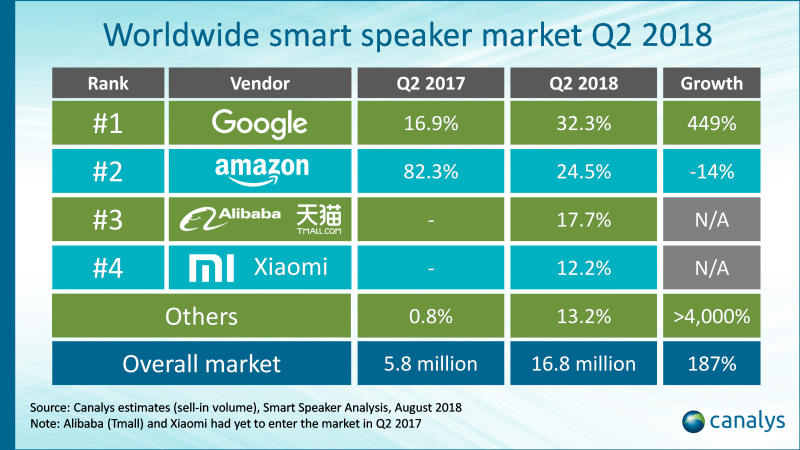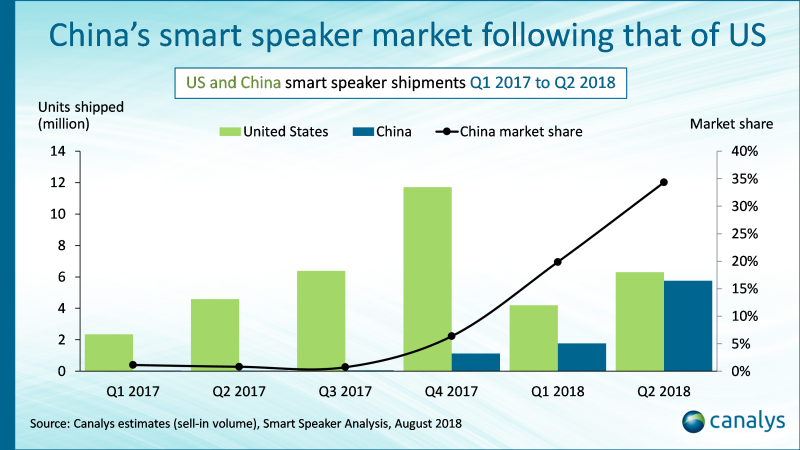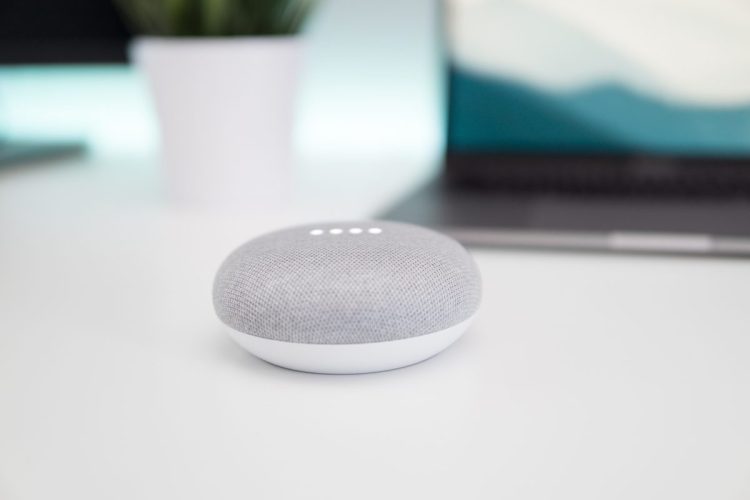Watch all the Transform 2020 sessions on-demand here.
Google Home. Amazon’s Echo. Apple’s HomePod. The market for speakers powered by artificial intelligence (AI) is booming, and it’s showing no signs of slowing. According to a report from analysts at Canalys, the worldwide smart speaker market grew 187 percent in the second quarter of 2018. Collectively, Apple, Google, Xiaomi, Amazon, and others shipped 16.8 million units, up from nine million in the first quarter.
Google Home and Google Home mini devices, which were the top-selling smart speakers in Q1 2018, retained their lead in Q2: Google shipped 5.4 million models. Amazon nabbed second place with 4.1 million Echo speakers shipped, and Alibaba and Xiaomi came in third and fourth, respectively, with a total of five million shipments.

Interestingly, the HomePod escaped mention in Canalys’ report. Previously, the firm indicated that Apple’s Siri-touting speaker was in third place in the U.S., but that it failed to make the top four globally. And in July, it pegged its install base at 4 percent, a figure Canalys expects will grow to 10 percent by 2020.
June 5th: The AI Audit in NYC
Join us next week in NYC to engage with top executive leaders, delving into strategies for auditing AI models to ensure fairness, optimal performance, and ethical compliance across diverse organizations. Secure your attendance for this exclusive invite-only event.
The U.S. accounted for a majority of those shipments — 68 percent of Amazon’s and 58 percent of Google’s — but China was a rising star, growing 52 percent in the second quarter of 2018 compared to the U.S.’s 16 percent growth.
In China, the big winners were Alibaba and Xiaomi. Currently, Alibaba’s Tmall Genie speakers have a 50 percent share of the market, but Xiaomi’s catching up — its Mini AI speaker drove sales up 228 percent.

“China’s smart speaker market has quickly become a battlefield for only the big names, and it will be hard for the smaller players to catch up in terms of market share,” Hattie He, a research analyst at Canalys, said. “Alibaba and Xiaomi have both relied on aggressive price cuts to create demand … although the real level of user demand for smart speakers is currently unproven, China is on its way to overtake the U.S. in the near term.”
China, Canalys notes, has massive potential, with more than three times the number of households than the U.S.
In a prior report, Canalys predicted that the number of smart speakers in use will come close to 100 million by the end of 2018 (up from under 50 million at the end of 2017), and that the market will more than double to hit 225 million units by 2020.
It also projected that Amazon would continue to see its market share slip, from 50 percent in 2018 to 34 percent by 2022.
The global smart speaker market could be worth as much as $30 billion by 2024, according to Global Market Insights.


